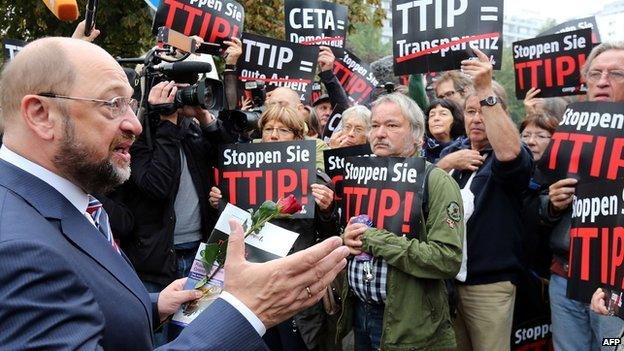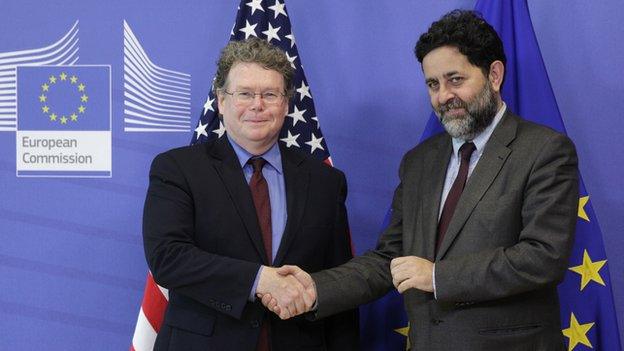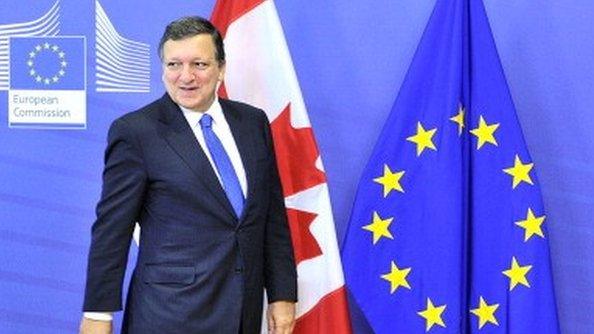EU reveals US trade talks agenda in key TTIP document
- Published

European Parliament leader Martin Schulz spoke to anti-TTIP protesters in Berlin last month
MEPs and the EU Commission have welcomed publication of the EU's priorities in trade talks with the US, which had long been kept secret.
The negotiating mandate, external for the talks - which are known as TTIP - sets out what the EU hopes to achieve through an eventual free trade deal with the US.
It could be the biggest trade deal in the world, creating many new jobs.
But critics fear such a deal could weaken EU standards in areas such as public health and the environment.
An EU Commission study , externalpublished a year ago estimated that the Transatlantic Trade and Investment Partnership (TTIP) could boost the size of the EU economy by 120bn euros (£94bn; $152bn) - equal to 0.5% of GDP - and the US economy by 95bn euros (or 0.4% of GDP).
The EU Trade Commissioner, Karel de Gucht, said he was "delighted EU governments have chosen today to make the TTIP negotiating mandate public - something I've been encouraging them to do for a long time".
"It further underlines our commitment to transparency as we pursue the negotiations. And it allows everyone to see precisely how the EU wants this deal to work."
In July the European Ombudsman, Emily O'Reilly, had also urged more transparency, external in the TTIP negotiations. Her plea came in letters to the Commission and the Council - the body representing all 28 EU member states' governments.
Corporate power
German Socialist Bernd Lange, chair of the European Parliament's trade committee, praised the publication as "an important step towards more transparency in these trade talks", but added: "I still hope that member states will show more willingness to listen to and act upon the repeated calls of MEPs and citizens in the future".
Several European non-governmental organisations (NGOs) and MEPs have questioned the TTIP investment rules, fearing that they could tie governments' hands in the face of powerful US corporations.
There are worries that TTIP could open the door for companies to sue governments through a mechanism called investor-to-state dispute settlement (ISDS).
According to the EU negotiating mandate, however, the right to investment protection should not outweigh the right of EU states to "pursue legitimate public policy objectives" in areas such as public health, security and the environment.
There is pressure in Brussels to hammer out the TTIP details next year, before America becomes preoccupied with campaigning for the 2016 US presidential election.
- Published13 September 2014

- Published1 August 2014

- Published26 September 2014

- Published10 September 2014

- Published18 June 2013
